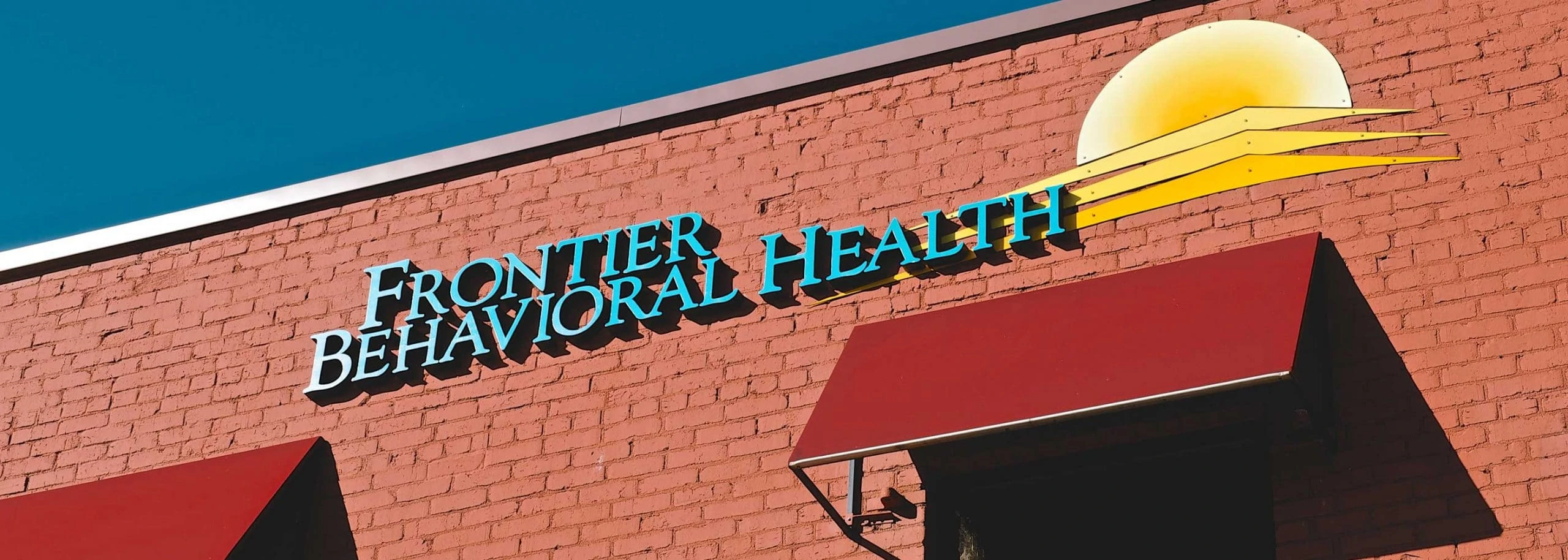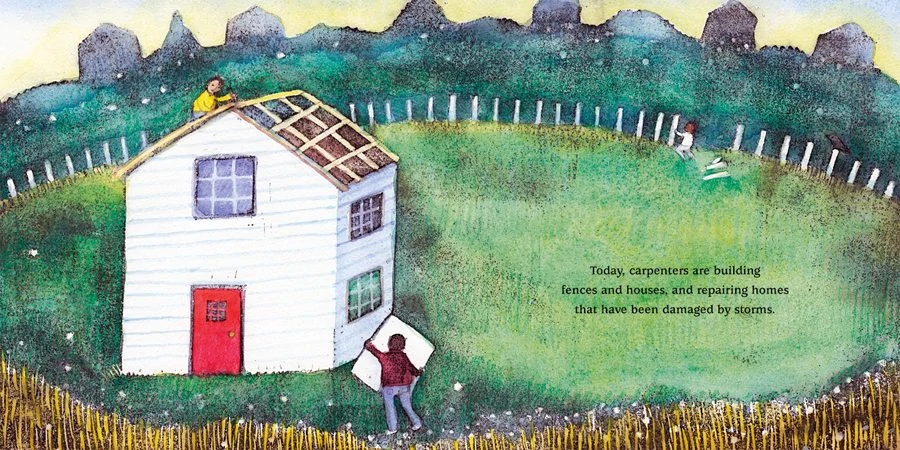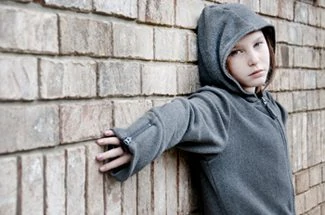Originally posted January 29, 2018
Though Yoga Calm began in elementary school classrooms and student counseling groups, today, a wide variety of organizations and facilities have incorporated our program in their service to children and families.
One of these is Frontier Behavioral Health, a trauma-informed care organization that provides mental health treatment and support for individuals throughout the greater Spokane area.
Several years ago, FBH’s Director of Child and Family Services first began to encourage clinicians who were interested in yoga to sign up for a Yoga Calm training. The response has been strong ever since.
“A Good Complement to Mental Health Treatment”
“I had been practicing yoga for years,” says Morgan Watson, a child specialist with FBH. “So when the opportunity arose to become trained in therapeutic yoga, I jumped on it. I had personally experienced the benefits of yoga on mental health, and I felt that it would be a good complement to mental health treatment that could address chronic trauma for clients who are dissociated and disconnected with their bodies.”
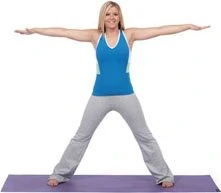
In fact, Naomi’s whole team of clinicians is now enrolled in Yoga Calm’s online certification program and will soon be offering groups in all of the Spokane’s East Valley School District for the students on their caseloads, elementary through high school.
Morgan, meanwhile, runs Yoga Calm groups for children, teens, and adults alike, as well as in individual sessions for clients who feel more comfortable working outside of a group setting.
I use MOST of the Yoga Calm activities, so my book is starting to fall apart! I routinely use the “Calm – Activate – Calm” approach during our groups. I encourage the kids to take lead in all of the stages: the deep breathing exercise using the Hoberman sphere (kids love this!), practicing the Mat 20, playing emotional and social activities/games (Block Creek – another one kids LOVE! – Trust Walk, for instance). Adult and youth clients have shared their excitement and positive experiences with using yoga as a form of mental health treatment. They say things like, “I bought my own yoga mat and started doing yoga. It helps me feel less stressed and calmer,” or “I feel more relaxed,” “I feel peaceful,” or “I sleep better after yoga.”
Not Just Cognitive but Experiential
“The kiddos enjoy the groups,” agrees Naomi. “They look forward to them. The staff is always asking for more groups!” Since there’s movement and fun in the activities, the students don’t consider it “work.”
I always enjoy seeing quiet, anxious students transform over the course of a group. They may not participate much beyond observing for the first groups, and by the end, they’re often leading activities.
One of my favorite groups was at the project-based learning program, an extension of East Valley High School. In addition to the students on my caseload, the school counselor allowed other students to self-select to be in the group. I was surprised by how many teenage boys wanted to do yoga! These boys took the classes very seriously and said it made a big difference in how their day went. They wanted to start every day with Yoga Calm!
One of the keys of yoga’s efficacy in the mental health setting, observes Morgan, is that it’s not just cognitive. It’s experiential. Kids – and adults – get to experience what change is like in a very real and immediate way: through their bodies, as well as their minds.
Experiencing these change states (stillness, observing the changing of emotions, thoughts, and physical sensations) allows the child to FEEL instead of only using logic to gain insight. Allowing children to feel what it’s like increases their ability to tune into and understand their own bodies, feelings, and thoughts that are occurring in the moment and externalize what’s happening and ask for/get what they need.
I remember one day after we did the “Boat Ride” guided visualization, one girl came up to me and asked, “Can I have a copy of that story? It made my body feel calm.”
Addressing Trauma through Yoga
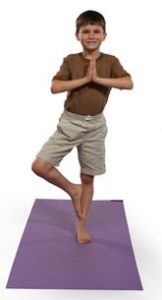
Naomi elaborates:
These youth may not want to talk about their experiences. Traditional counseling is all about talking. I have had teen clients tell me their past experiences with counseling felt like being poked with a stick. With Yoga Calm, youth experience transformation in their minds and bodies through fun activities that make them feel good. Everything is experiential and the concepts can be unspoken.
For example, in the “Animals in the Forest” activity, even if the instructor doesn’t say a word to explain what the “take home lesson” was, students understand the importance of supporting one another. They feel it. This is more effective than the traditional top-down, cognitive-based approaches of traditional counseling interventions. Yoga Calm heals the whole person.
We are so excited by the amazing work clinicians like Morgan and Naomi are doing at Frontier Behavioral Health and other mental health organizations throughout the country! Recent studies have shown just how pervasive trauma is and its impact on children’s health and well-being. But the earlier and more comprehensively it can be addressed, the greater the likelihood of transforming childhood trauma into well-spring of mindfulness, strength, and peace through community.
Organizations like FBH are helping pave the way.

